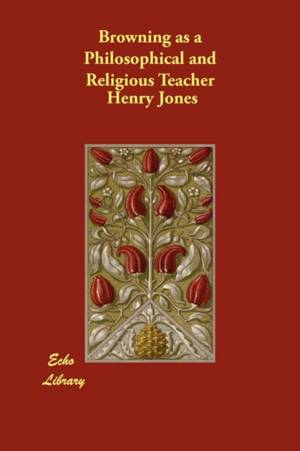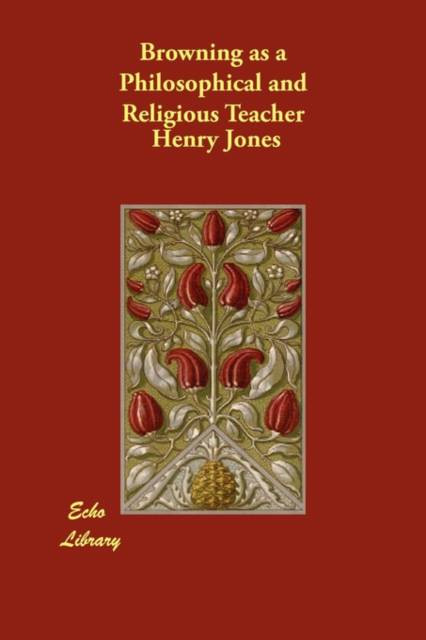
- Retrait gratuit dans votre magasin Club
- 7.000.000 titres dans notre catalogue
- Payer en toute sécurité
- Toujours un magasin près de chez vous
- Retrait gratuit dans votre magasin Club
- 7.000.0000 titres dans notre catalogue
- Payer en toute sécurité
- Toujours un magasin près de chez vous
15,45 €
+ 30 points
Format
Description
Purchase of this book includes free trial access to www.million-books.com where you can read more than a million books for free. This is an OCR edition with typos. Excerpt from book: CHAPTER III BROWNING'S PLACE IN ENGLISH POETRY " But there's a great contrast between him and me. He seems very content with life, and takes much satisfaction in the world. It's a very strange and curious spectacle to behold a man in these days so confidently cheerful." (farlyle.) TT has been said of Carlyle, who may for many reasons be considered as our poet's twin figure, that he laid the foundations of his world of thought in Sartor Resartus, and never enlarged them. His Orientirung was over before he was forty years old -- as is, indeed, the case with most men. After that period there was no fundamental change in his view of the world; nothing which can be called a new idea disturbed his outline sketch of the universe. He lived afterwards only to fill it in, showing with ever greater detail the relations of man to man in history, and emphasizing with greater grimness the war of good and evil in human action. There is evidence, it is true, that the formulas from which he more or less consciously set forth, ultimately proved too narrow for him, and we find him beating himself in vain against their limitations; still, on the whole, 'Carlyle speculated within the range and influence of principles adopted early in life, and never abandoned for higher or richer ideas, or substantially changed. In these respects there is considerable resemblance between Carlyle and Browning. Browning, indeed, fixed his point of view and chose his battleground still earlier; and he held it resolutely to his life's close. In his Pauline and in his Epilogue to Asolando, we catch the triumphant tone of a single idea, which, during all the long interval, had never sunk into silence. Like "The wise thrush, he sings each song twice over, Lest you should think he never could recaptur...
Spécifications
Parties prenantes
- Auteur(s) :
- Editeur:
Contenu
- Nombre de pages :
- 212
- Langue:
- Anglais
Caractéristiques
- EAN:
- 9781406853735
- Date de parution :
- 13-10-09
- Format:
- Livre broché
- Format numérique:
- Trade paperback (VS)
- Dimensions :
- 152 mm x 229 mm
- Poids :
- 317 g

Les avis
Nous publions uniquement les avis qui respectent les conditions requises. Consultez nos conditions pour les avis.






